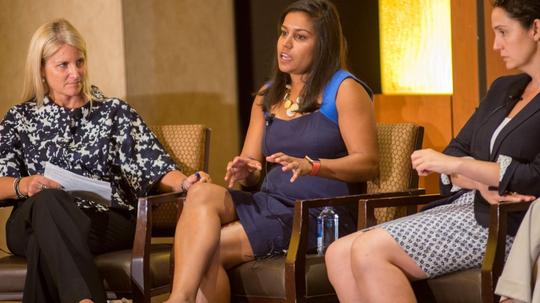
The realm of venture capital has earned a reputation of being a boys' club. And a recent study shows just how that’s impacting success for startups, specifically those run by women.
According to Sahil Raina, a PhD student at the University of Michigan’s Ross School of Business, the performance (in terms of sales exits or IPOs) of women-led startups that receive venture capital is worse than that of men-run ventures with financial backing. The unpublished study also suggests this could be stemming from a bigger, underlying gender problem in the VC community.
Raina gathered and picked apart data from Crunchbase (so perhaps take it with a grain of salt) for his study. Although he found one promising pattern--that VCs with and without female partners were investing in women-led startups at the same rate--performance was another story.
Generally speaking, ventures lead by women and backed by VCs showed an exit rate 37 percent lower than that of startups led by men. However, Raina’s findings also hinted that a lack of women partners in the VC world is partially to blame for that disparity.
Research suggests that "VC gender composition has contributed strongly to the performance gap between female- and male-led firms."
There was a 25 to 30 percent lower exit rate for women-run startups that received funding from VC firms that had only male partners. There was no gap in performance for women-led ventures backed by investment firms with at least one female partner onboard.
“The disparity is solely due to improved performance among female-led firms,” Raina concluded in the study’s abstract. “This suggests that VC gender composition has contributed strongly to the performance gap between female- and male-led firms.”
Essentially, Raina’s research points to a larger issue that needs to be addressed. Even if funding for female-led startups increases, based on this study, the fate of those ventures may be thwarted by VC firms with all-male partners. Raina’s findings suggest that the disparity in startup performance can be solved by addressing the gender gap within the investment firms themselves.
Image on file from Greater Boston Chamber of Commerce.








